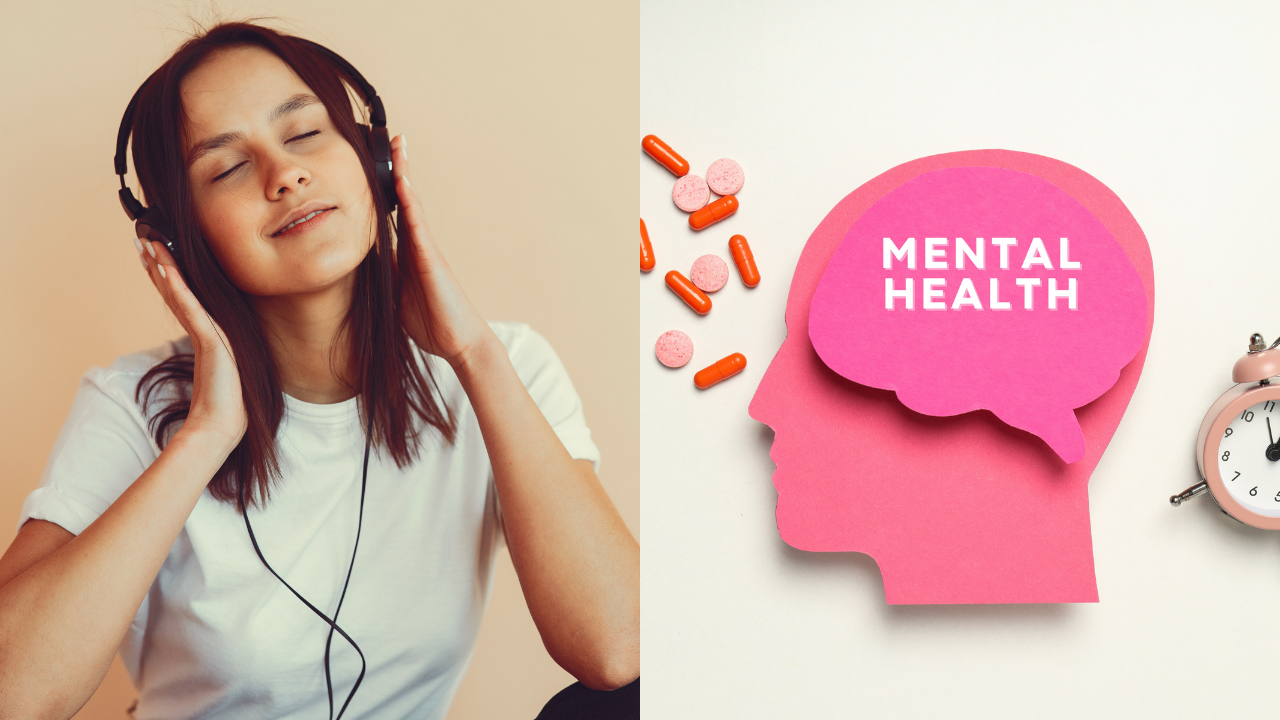-
news
-
Health
-
mental health
Can music therapy change your mental health and well-being?
Experts share how music therapy harnesses the power of the brain to heal emotional wounds, reduce anxiety, and connect individuals with themselves through scientifically supported and accessible methods.

Image – Canva
Music therapy, a scientifically supported therapeutic approach, is gaining prominence for its ability to address mental health challenges. By using music as a tool to manage psychological, cognitive and emotional issues, it offers a versatile approach to mental well-being.
We speak to a clinical counselor, a singer and musician, and the founder of a mental wellness platform, who share the impact of music on the brain, emotions, and the overall healing process.
According to Dr Karanvir Singh, Clinical Counsellor, music therapy uses methods such as songwriting, playing instruments and guided listening to stimulate brain areas associated with emotions, memory and creativity.
“Music has a profound effect on the functioning of the human brain. It stimulates the production of dopamine and serotonin, which are molecules essential for mood control, and activates areas associated with emotions, memory, and creativity. Additionally, It reduces stress and anxiety by reducing cortisol levels,” he shares.
In India, where mental health disorders affect millions of people, music therapy offers a culturally relevant and accessible solution. Dr. Singh says that its therapeutic effects Indian classical raga Like Yaman and Darbari in reducing stress and anxiety.
Beyond individual mental health, music therapy has proven effective in trauma healing, supporting neurodivergent groups, and aiding stroke recovery. Advocating simple approaches such as community singing or guided workshops, he suggested, “Mental health treatment can be made accessible and effective by integrating music therapy into everyday activities or workplace wellness initiatives.”
At GoodLives, Founder Sakshi Shah has witnessed firsthand the transformative power of music therapy. She describes it as “a remarkable conduit between the heart and mind” that enables people to process difficult emotions, manage stress, and reconnect with themselves.
“Music can increase focus, evoke stronger emotions and even improve memory,” she says. Whether it’s through a guided music session with a therapist or simply listening to calming tunes, the benefits are significant.
Shah also points out the importance of outreach and urges individuals to start small, such as creating a playlist or participating in a group sing-along. “It’s not just about sound, but about fostering moments of connection and mindfulness,” she explains, emphasizing the therapy’s application in personal and professional settings alike.
For singer and composer Thomson Andrews, music therapy is a symbol of universality and harmony. He says, “Music speaks directly to our emotions and helps us connect with our inner self in a way that words can’t.” Andrews outlines its ability to stimulate brain areas associated with creativity and emotional regulation, making it an effective tool for a variety of conditions, including ADHD, Alzheimer’s, and trauma.
“Collaborative music sessions like group drumming in the workplace not only reduce stress levels but also foster a sense of community,” shares Andrews. He further emphasized its accessibility and pointed out that no formal training is necessary to experience its benefits. “Since music is a path to harmony, healing and optimism, I urge everyone to investigate how it can enhance their mental health journey.”
From reducing anxiety to boosting relationships, music therapy offers a transformative path to healing the mind. As these experts highlight, even small steps – like creating a calming playlist or joining a community sing-along – can make a profound difference to mental well-being.
Get the latest news live on Times Now with breaking news and top headlines on mental health, wellness and more from around the world.


